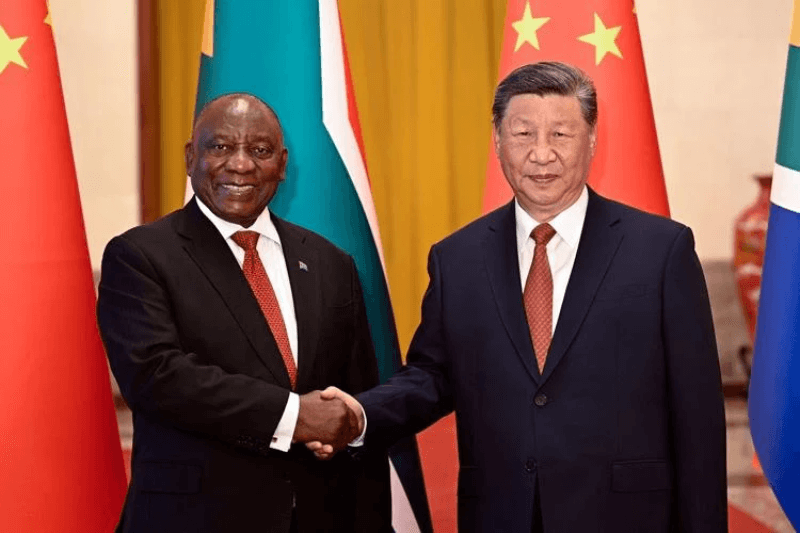China welcomed more than fifty African leaders in Beijing this week, therefore signifying yet another important chapter in the always growing ties between them. Held among growing political and economic uncertainty, the summit was a show of grandeur with red carpets, vibrant entertainment, and well-publicized bilateral sessions.
Commenting on the lavish greeting, Professor Macharia Munene, an international relations specialist based in Kenya, said “It appeals to their vanities.” With China delivering a clear message: “We are in the same boat, we are all victims of Western imperialism,” the orchestrated optics were meant to portray equality and cooperation.
One-on-one meetings between Chinese President Xi Jinping and many African leaders like Kenyan President William Ruto and South African President Cyril Ramaphosa revealed As China presented itself as a developing country alongside Africa, contrasting its approach with the conditional aid packages generally provided by the US and EU, the summit underlined solidarity.
Over the previous two decades, China’s approach in Africa has surely been rather successful. With a quarter of the continent’s exports—mostly metals, minerals, and fuel—heading to China, it is today Africa’s biggest trading partner. The International Monetary Fund (IMF) claims that since 2001 African exports to China have doubled. China has simultaneously become Africa’s main manufactured goods and machinery supplier.
Still, China’s trade balance is shockingly in her advantage. During his discussion with President Xi, President Ramaphosa brought up this matter in order to advocate more balanced trade and higher job creation in South Africa. China answered favorably, expressing eagerness to help local businesses by means of recruitment campaigns for Chinese companies operating in South Africa.
Seeking more financing from China, Kenya, struggling with debt, also looked at Major infrastructure projects including the completion of the Standard Gauge Railway (SGR) and other vital initiatives including highways, dams, and a technologically driven transport system for Nairobi are seeking to get financing from President Ruto. Four years ago China stopped funding the SGR, leaving the project unfinished.
But as China keeps lending extensively to African countries, questions about debt sustainability have become more pressing. Recent years have seen a debt crisis in several African nations including Ethiopia, Zambia, and Ghana. Every big China-Africa conference now revolves on this debt load, which still remains a major concern in this most recent round of negotiations.
Keep Reading
While foreign powers including China, the US, and Gulf states all vie for influence in Africa, experts like Paul Frimpong, executive director of the Africa-China Centre for Policy and Advisory, believe that African nations must concentrate on boosting their economies to lower reliance on outside forces. African leaders should use these summits, according to Dr. Cobus van Staden of the China-Global South Project, to assert their own agendas, negotiate independently, and advance long-term self-reliance.
The IMF advises African nations to adjust as China’s economy slows by boosting regional connectivity and carrying structural changes to create greater local income. This will be absolutely important to guarantee Africa’s economic resilience against changing world circumstances.

